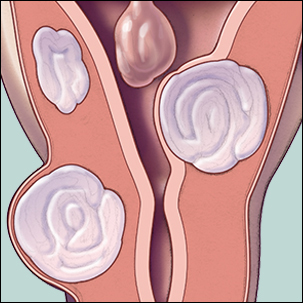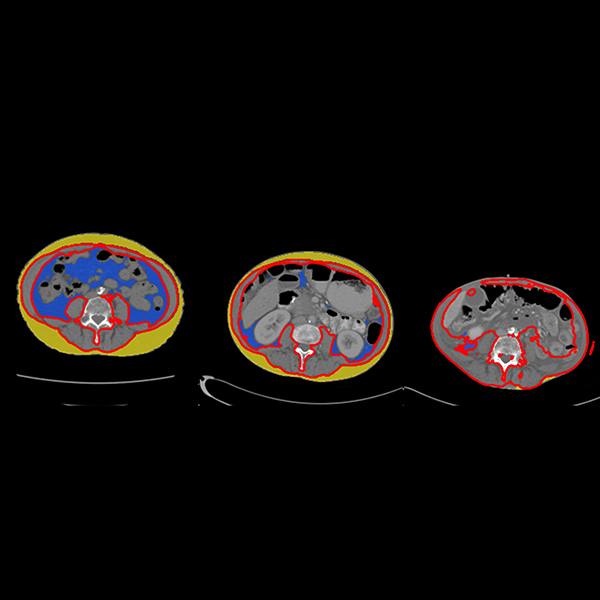-
Research
5 tips for early career scientists, from an early career scientist
Biomedical science is about solving puzzles. Why does a cell stop doing its job? How does it know what to do in the first place? These researchers are a vital link in the chain effort that leads to new medical discoveries. But it's not an easy road. Competition for funding, finding the right fit with a lab, work-life balance and, most recently, the pandemic can take a toll on the most ardent early career scientist. So mentorship is an essential component for scientists just starting on this path.
"One of the most fulfilling parts of becoming a researcher, for me, is making sure that the future generations of scientists have adequate mentorship," says Naureen Javeed, Ph.D., an early career scientist at Mayo Clinic. "I struggled to find adequate guidance, as many do, so I want younger generations to see me as an example of someone who struggled but persevered."
Dr. Javeed grew up in Wisconsin as a first-generation American to parents who emigrated from India. She planned to go to medical school, but in college, she slowly started to realize that clinical care was not her true passion. And then, in her junior year, a close family member still living in India died of cancer.
"I know he could have survived with proper medical care, and I just got really, really frustrated. I came to the realization that I wanted to be a part of prevention and cures for diseases, and pursuing a career in biomedical research would be the way to accomplish this," she says.

A Path to Research
To help pay for college, Dr. Javeed worked in a laboratory caring for fruit flies, a common research model in genetics. She thought it was, she says, "the coolest thing ever," that you could study human diseases using a fly and began seriously looking at a career in biomedical research. But the degreed researchers in that lab warned her: it is not easy.
To make sure a career in science was a good fit, Dr. Javeed worked for a year after graduation as a research technician and then received a master's degree in biotechnology. Ultimately, she decided to get her Ph.D. at Mayo Clinic Graduate School of Biomedical Science. Her first inclination was to study cancer biology, hoping to find the root cause of diseases like the one that led to her family member's death. Dr. Javeed joined the laboratory of Debabrata Mukhopadhyay, Ph.D., to study the biology of pancreatic cancer, and he introduced her to a new concept of cellular communication: extracellular vesicles.
"I wanted to find a niche not many people were tackling. In research, it is important to challenge existing paradigms in your field, and that was what extracellular vesicles represent to me; a new concept in which cells communicate and exchange genetic material."
After graduation, she continued to study the topic in the lab of Aleksey Matveyenko, Ph.D., and with his mentorship has received a federal career development award and has grown her network of scientists she turns to, and who turn to her for expertise. Since it worked so well for her, that's what Dr. Javeed tells her mentees: find what's new, find the research gaps and go for that. That's research tip number one.
Here are a few more tips she regularly shares ("I overshare," she says.).
2. Don't put all your eggs in one mentorship basket.
"I think it's important that we don't put all of our eggs in one basket," she says. "If you don't agree with your primary mentor, you can get feedback from others who may be on your mentorship committee or collaborators." With that knowledge, she says, the mentee can get a wider perspective and respond to their mentor with facts and well-supported opinions. She also reminds mentees that mentorship needs can change with each career stage so it is important to select a mentor that can accommodate different needs during your academic journey.
3. Talk to your peers about their mentorship experiences.
"I remember when I was in my early 20s, and how timid I was to go and talk to faculty members," says Dr. Javeed. "If that is the case, word of mouth is always good. Talk to current graduate students, and if you are a potential post-doc, make sure to talk to existing lab members before selecting a lab." Part of finding the right lab is sending that email or asking to meet with someone, she says, so you don't miss an opportunity. "And honestly, a lot of mentors want to help. They want to talk to students and trainees."

4. Set goals and be efficient about meeting them.
"Part of being successful in science is being efficient with time. One of my goals in mentorship is to provide mentees information they can use to make decisions and figure things out earlier than, for example, when I figured them out," says Dr. Javeed. A good mentor will help early career scientists ask provocative questions, guide them through areas of study and how much data to gather, and when to move on from a research question. "A good mentor will ultimately guide you in achieving your goals and set limits, so you don't end up spinning your wheels. As much as we like to think we have all the time in the world, we don't."
5. Your career and life decisions are your own.
Dr. Javeed knew that a career in academia was her goal. But early in her journey, she faced the challenge of not having a role model. And unfortunately, a person who could have played that role turned out to be thoroughly unsupportive.
"In one instance, I was told, 'You will never make it in science'," Dr. Javeed says. "And when you are young and impressionable, just figuring out life and a new career path, that can deter a person. But I refused to believe it." Luckily, Dr. Javeed says, she knew that lab was only a steppingstone. She had a goal for being there, and when she achieved the goal, she left that lab and continued to follow her path.
"But that experience is one reason why I want to be a positive influence on the next generation of scientists. The last thing mentors should be doing is deterring young talent away from science," she says.
But that doesn't mean she counsels every scientist to stay in the field.
"If you want to do science, and especially if you want to go the academia route, you have to make sure that this is what's going to make you happy. I am always honest with my mentees and tell them that science is like 90%–95% failure. So you have to be ready to fail a lot. If you get excited about the 5%–10% of success, and your passion and drive to propel the science forward is still there, then this is what you should be doing."
— Sara Tiner







